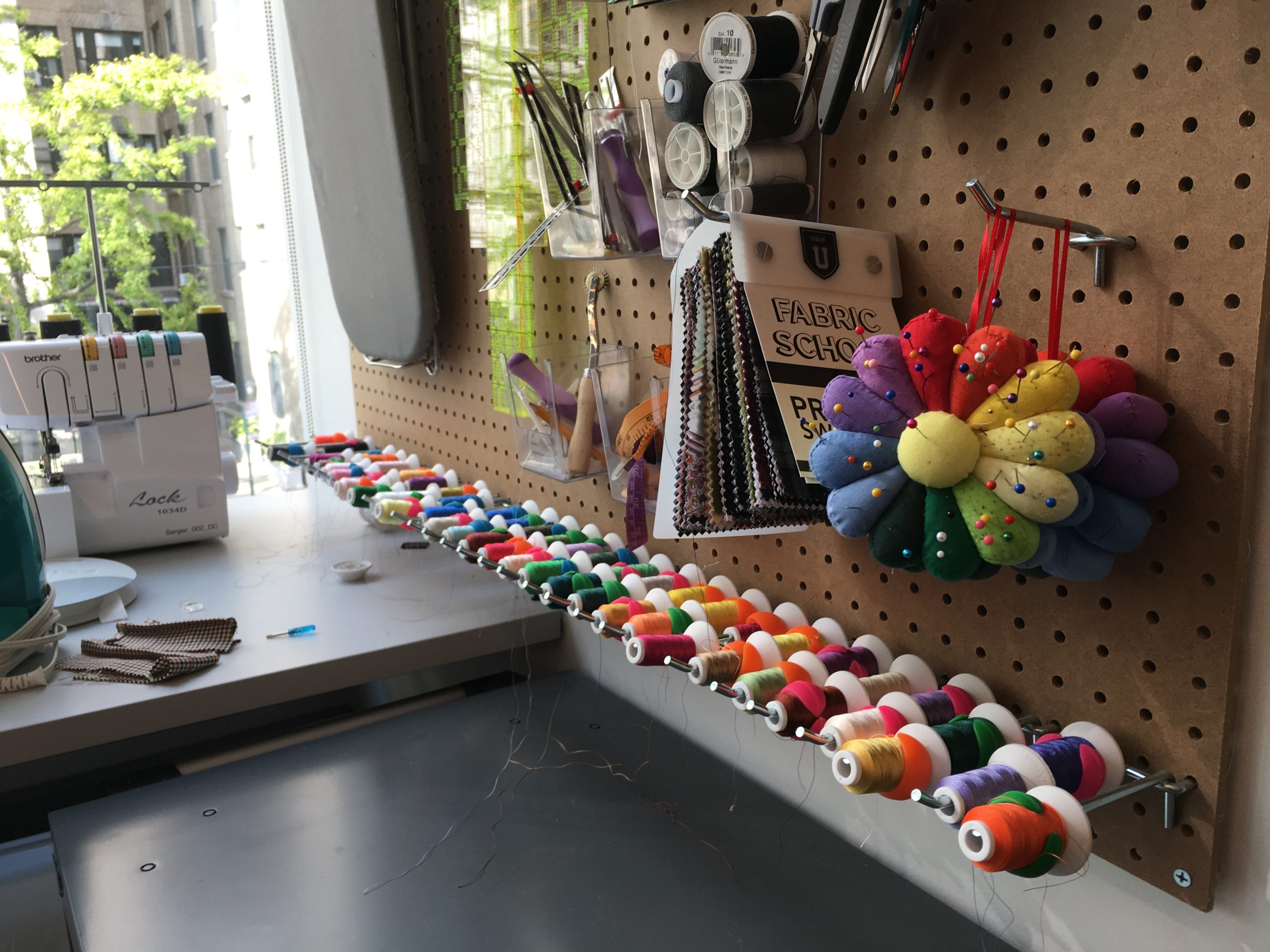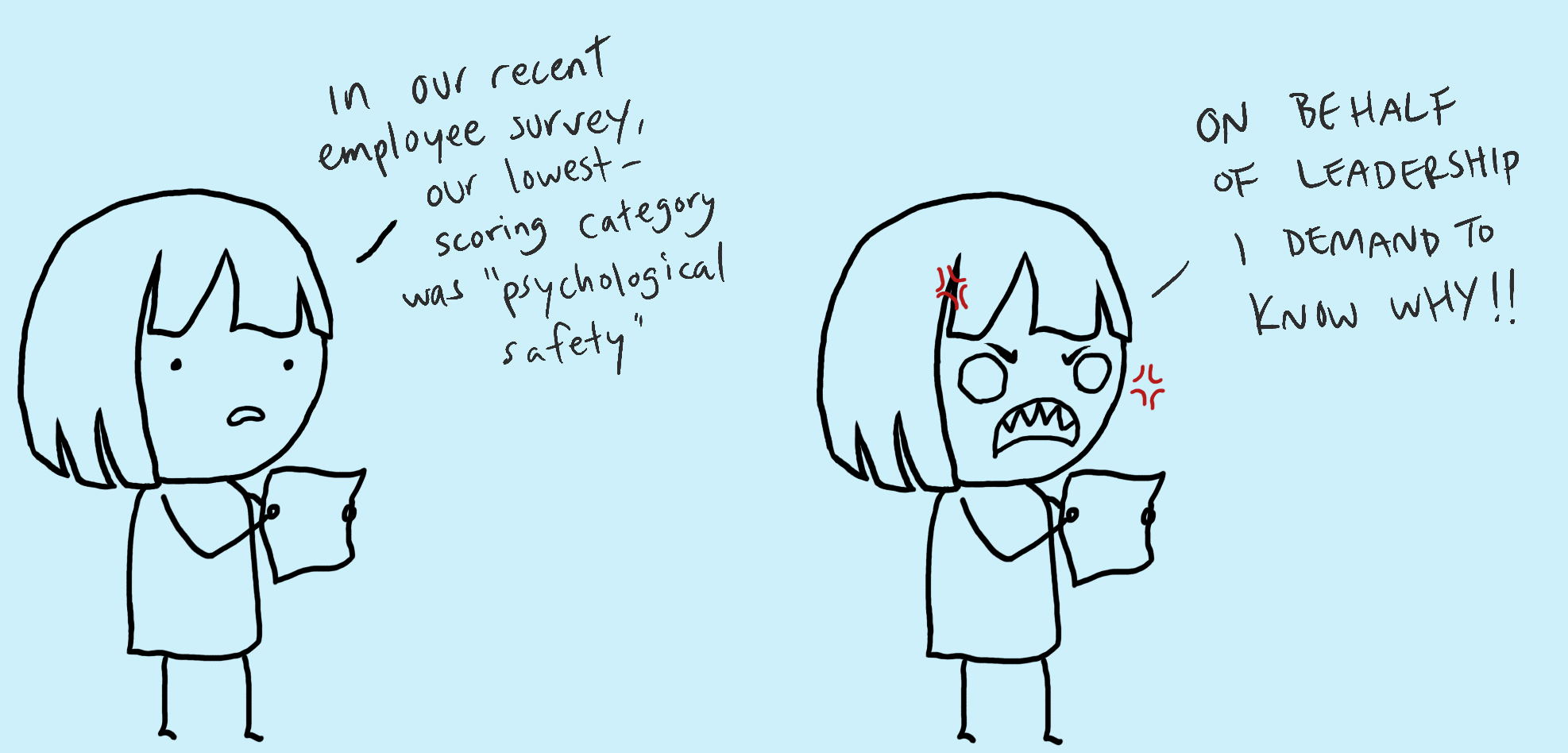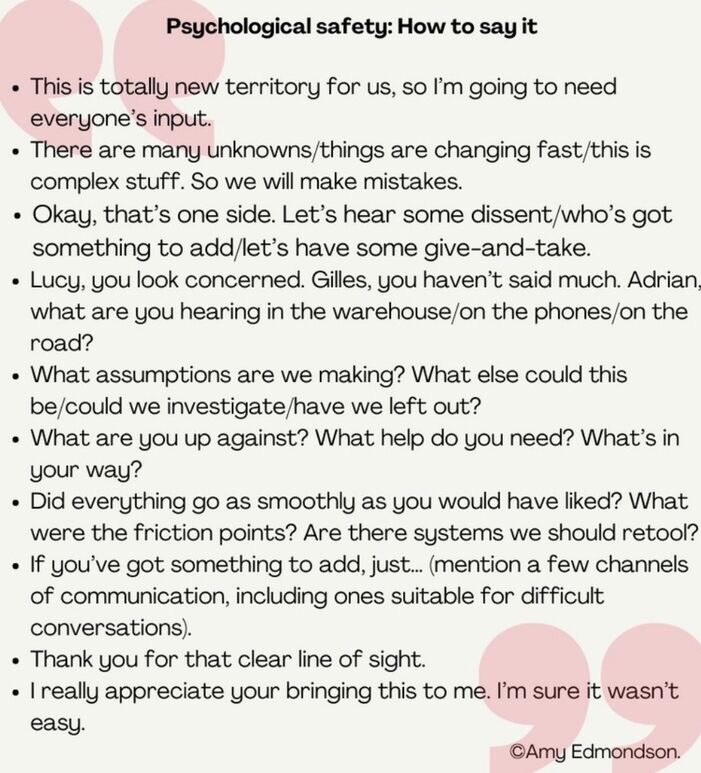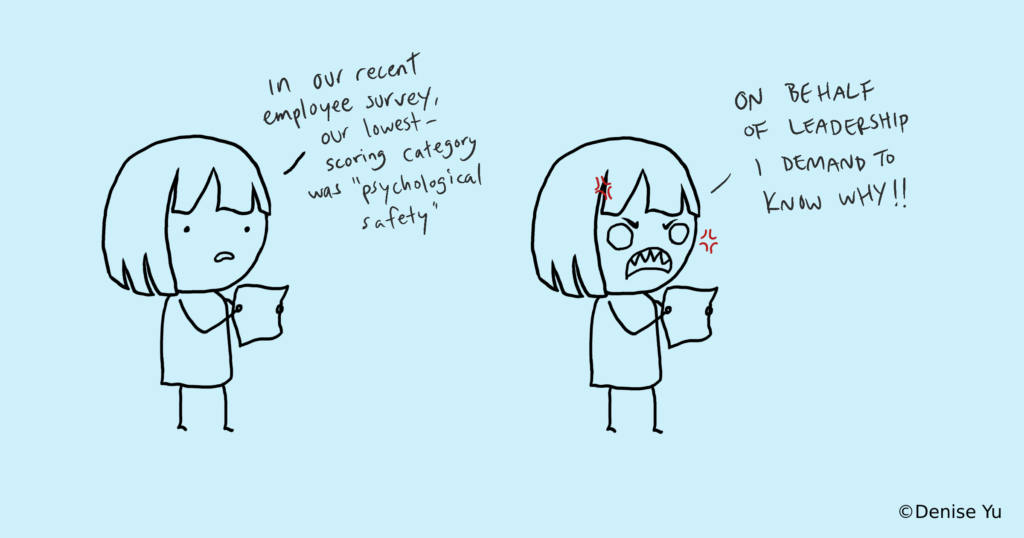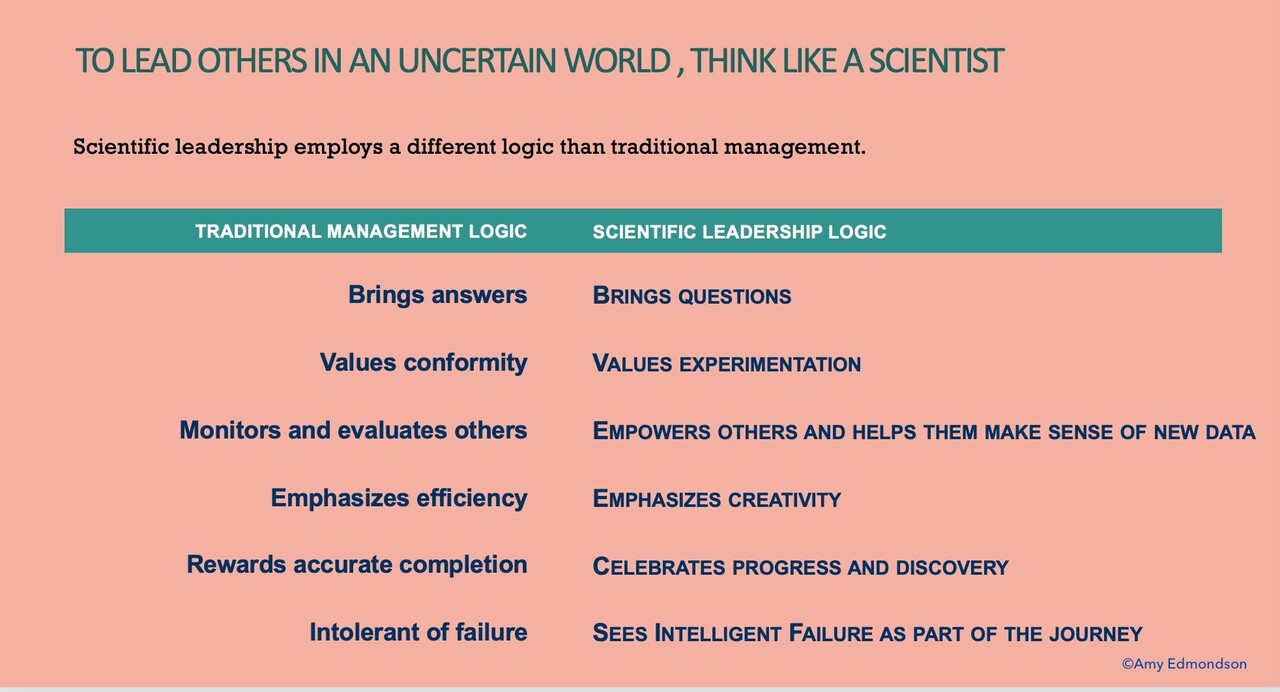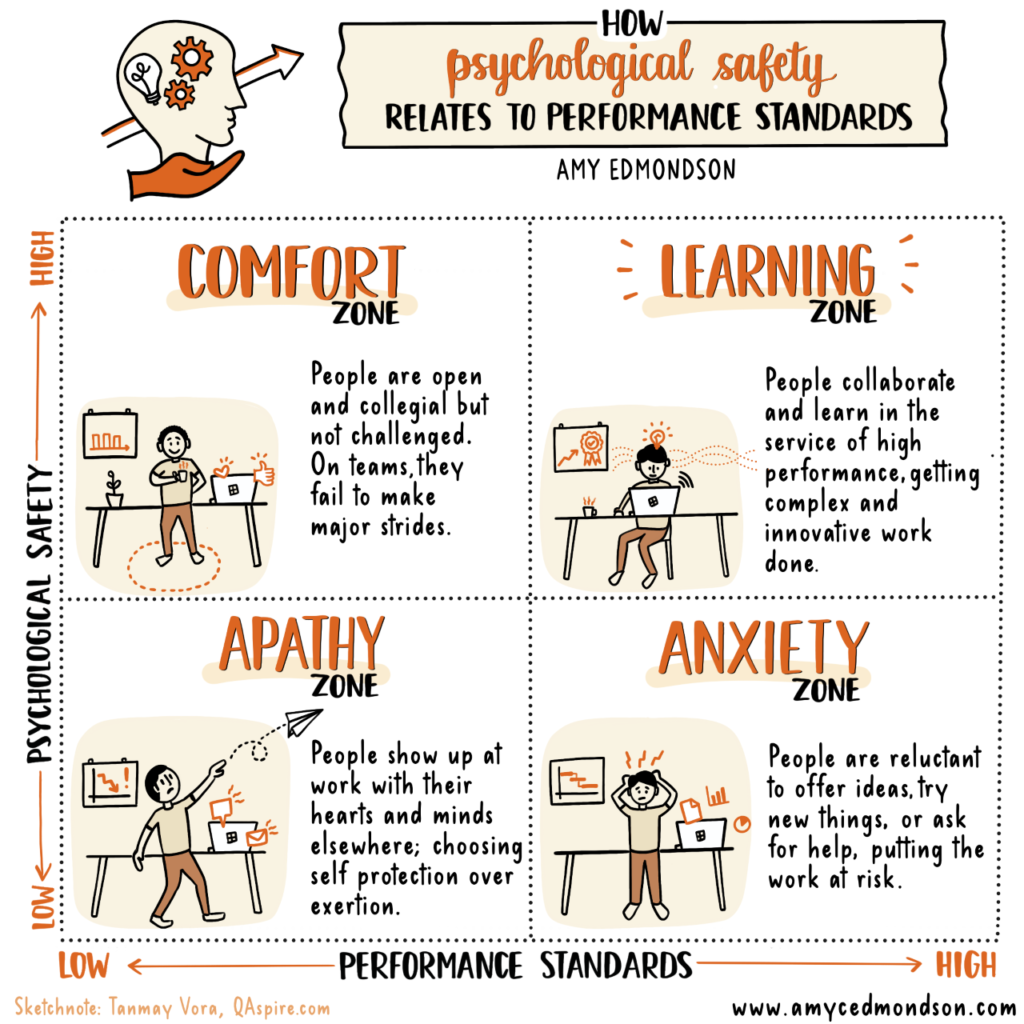Recommended Resources & Inspiration
The best of the web: start here
Psychological Safety Weekly Newsletter
Weekly roundup of articles from all over. Curated by @Tom_Geraghty.
Google’s ReWork Guide: Understand Team Effectiveness
Google’s guide to fostering psychological safety. Action steps and a customizable worksheet.
A Guide to Psychological Safety
Learner Lab Guide to creating psychological safety.
The Neuroscience of Psychological Safety
From the NeuroLeadership Institute
Podcasts and Videos
Amy talks Intelligent failure on the Forbes main stage
It’s OK to fail, but you have to do it right
Amy talks with Adi Ignatius of Harvard Business Review
Is it safe to speak up at work?
Amy talks with Adam Grant.
Creating psychological safety in the workplace
Amy talks with editors of Harvard Business Review.
Creating psychological safety in the workplace
Amy talks with editors of Harvard Business Review.
How to Lead When the Future is Uncertain
Amy talks with Mark Crowley of Lead from the Heart.
From Amy’s Psychology Today Blog
All in This Together? Grappling with the Unequal Effects of Covid-19
The Role of Psychological Safety in Diversity and Inclusion
A Fly on the Wall in a Fearless Organization: What Psychological Safety Sounds Like
